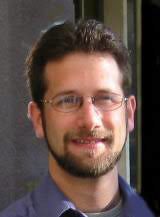LARGE-SCALE EVIDENCE GENERATION ACROSS A NETWORK OF DATABASES (LEGEND) FOR HYPERTENSION: REAL-WORLD, RELIABLE AND REPRODUCIBLE
MARC A. SUCHARD – UNIVERSITY OF CALIFORNIA, LOS ANGELES
ABSTRACT:
Concerns over reproducibility in science extend to research using existing healthcare data; many observational studies investigating the same topic produce conflicting results, even when using the same data. To address this problem, we propose a paradigm shift. The current paradigm centers on generating one estimate at a time using a unique study design with unknown reliability and publishing (or not) one estimate at a time. The new paradigm advocates for high-throughput observational studies using consistent and standardized methods, allowing evaluation, calibration, and unbiased dissemination to generate a more reliable and complete evidence base. We demonstrate this new paradigm by comparing all hypertension treatments for a set of effectiveness and safety outcomes, producing 587,020 hazard ratios, each using methodology on par with state-of-the-art studies. We furthermore include control hypotheses to evaluate and calibrate our evidence generation process. Results agree with the limited number of randomized trials. The distribution of effect size estimates reported in literature reveals an absence of small or null effects, with a sharp cutoff at p = 0.05. No such phenomena were observed in our results, suggesting more complete and more reliable evidence.



